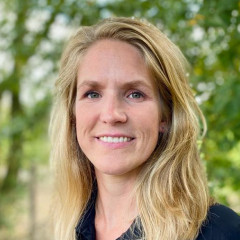The importance of joint decision-making in medical matters
Shared decision-making is about the process where doctor and patient discuss together the medical options that best suit the patient. They discuss the advantages and disadvantages of each option, the patient’s preferences and the circumstances. That may sound obvious, but unfortunately doesn’t occur often in practice. Often this is due to a lack of time and/or resources. This comes at the expense of a well-informed, well-considered and conscious medical choice. In this article, we’ll dive deeper into this subject. Why is it so important anyway to reach a medical decision together with your doctor?


1. Autonomy: your body, your choice.
First of all, medical decisions having to do with your body should ultimately be made by you. Of course, guidance from a medical specialist is essential.
According to research in Patiëntenfederatie Nederland (article in Dutch) 9 out of 10 patients want to be involved in decision-making with their doctor. However, only half of them are presented with multiple medical options. This is remarkable because there are almost always multiple options: like “do nothing” or “wait and see”.
2. Fully informed choice
Shared decision-making often leads to better informed choices. Taking the time to discuss your preferences and circumstances leads to a decision that better fits your situation. In these discussions, all the advantages and disadvantages of the various options can be elaborated upon. This time and attention is essential for a well-informed medical decision, and one that you can fully stand behind.
3. Avoid regretting a treatment
Sharing in the decision also reduces the chance that you will end up regretting a treatment. To avoid regret it is important that you and your doctor look at what the options are, and understand the potential consequences of each choice. Unfortunately, it still sometimes happens that someone regrets a medical choice they have made. A Dutch article that appeared on August 18, 2021 in Trouw gives a lot of good examples. Like a young man who opted for a stomach reduction and afterwards had complaints of unexplained abdominal pain. The chance of this type pain after a stomach reduction is 15 per cent. That was explained in the doctor’s office, but when someone really wants an operation they may not hear or fully understand the consequences. The abdominal pain did not go away. As a result he regrets having gone through with the procedure.
Another example is the woman who regretted having radiation treatment after her cancer came back. She needed surgery to treat the recurring cancer, but had not realized that surgery after radiation treatment often comes with more complications. If she had realized this better beforehand, she would have opted for the surgery first, an equivalent option.
Making well-considered and well-informed choices is important, and certainly when it comes to your own body and your own life, or that of a loved one. Do you need help making a medical choice? The medical specialists at Hikos are ready to help you. With specialized and personal guidance, we will help you determine the right path through the healthcare maze. We do this by offering additional explanation about your treatment trajectory with your GP or medical specialist in the hospital. We are available daily to think along with you, outside the doctor’s office. Curious about what we can do for you? Contact us at 020 211 7206 or email us at [email protected]
